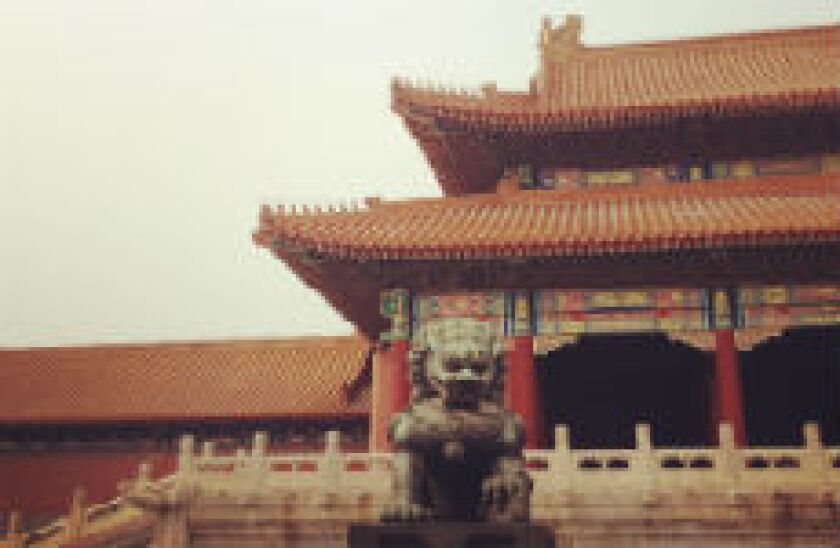Spending on the BRI for construction was $256bn between the start of 2014 and mid-2018, outpacing investment spending at $148bn, according to a November 15 report by the American Enterprise Institute. The report added that the share of private investment in the Belt and Road fell by 12% in the first half of 2018 compared to the first half of 2017.
"Private companies that were interested in participating have reconsidered," the report said. "This puts more pressure on the Chinese state. China’s foreign exchange reserves are no longer growing and are further threatened by a possible contraction in exports to the US. Beijing is more wary of spending to finance Belt and Road projects."
Speaking at an event on November 14, Carrie Lam, chief executive of Hong Kong, said the city wants to take a role in managing risks associated with the BRI.
"Risk management is essential to the projects of the Belt and Road, and we have the potential to emerge as the Belt and Road's risk management centre," she said. "[Hong Kong's] Insurance Authority and the China Banking and Insurance Regulatory Commission have come to an agreement. When a Mainland insurer cedes business to a qualified Hong Kong professional reinsurer, the capital requirements of the Mainland insurer will be reduced. This will increase the competitiveness of Hong Kong reinsurers in capturing reinsurance business ceded by Mainland insurers."
The initiative comes alongside a new industry group being formed.
"The Insurance Authority is also setting up the Belt and Road Insurance Facilitation Platform," according to Lam. "It will bring together key stakeholders to provide insurance and reinsurance services. It will also help Mainland companies taking part in Belt and Road projects find the insurance services they need right here in Hong Kong."
*
China and Singapore agreed to upgrade their free trade agreement on November 12, as detailed by a statement by China's Ministry of Commerce.
The new agreement upgrades the rules for origin, customs procedures and trade facilitation, trade relief, trade in services, investment, and economic cooperation of the original China-Singapore Free Trade Agreement. As part of the upgrade, the agreement also adds a mention to BRI cooperation as a means to deepen bilateral cooperation.
*
The China Securities Regulatory Commission (CSRC) and the Monetary Authority of Singapore (MAS) signed a memorandum of understanding on cooperation and joint supervision of the derivatives market.
"The MoU will enhance information sharing and cross-border supervision of futures exchanges and intermediaries that offer cross-border services to each other’s market participants," MAS said in a November 14 statement. "MAS and CSRC will also coordinate with each other on the listing and trading of exchange-traded derivatives products with nexus to each other’s capital markets."
*
China and the UK renewed their bilateral currency swap line this week, according to a notice by the Bank of England. The size of the swap line is unchanged at Rmb350bn ($50.3bn), with a duration of three years.
“The renminbi’s role in global trade and capital flows continues to increase. The renewal of this swap line reflects a continued commitment by the Bank of England and the People’s Bank of China to support an effective and resilient renminbi market in the city of London - the leading centre for renminbi trading outside of greater China.”
The BoE has not released data on the usage of its existing swap line with China and declined to do so when asked through a spokesperson.
One source noted the swap line functioned mostly as a contingency plan.
"From a UK perspective, the sterling-renminbi swap line supports both domestic and international financial stability," one source said. "In the unlikely event that a generalised shortage of offshore renminbi liquidity emerges, that poses a financial stability risk, the Bank will have the capability to draw renminbi under the swap facility in order to make this available to eligible institutions in the UK."
Marie Diron, a managing director in the sovereign risk group at Moody’s, told GlobalRMB that central banks themselves were still on the fence with regards to holding RMB.
"Some governments on the Belt and Road have signed swap line agreements with the PBOC," Diron said in a written response to questions. "[Rising] investment and trade linkages between China and the countries on the Belt and Road will heighten the use of the renminbi as a medium of exchange. However, we also highlight that the closed capital account, involving less free purchases and sales of the currency than is the case for other major currencies, will remain a hurdle to a significant increase in the use of the currency globally."
London remains an important hub for offshore renminbi (CNH) activities. Nearly 40% of CNH FX trading took place during European hours as of March, with total cross-border RMB trade settlement in the UK reaching Rmb176.2bn in mid-2018, up 143% on a year earlier, according to a report jointly published by City of London and PBoC's European representative office.
*
The China Banking and Insurance Regulatory Commission (CBIRC) disclosed an internal restructuring plan, which will lead to the merging of departments from the China Banking Regulatory Commission and the China Insurance Regulatory Commission, the two combined regulators which make up the new body. The new organisation will have 26 units, down from 43, with two risk control departments. The risk control departments will be responsible for corporate governance and the supervision of financial institutions.
*
Han Zheng, one of China's vice premiers, met KV Kamath, president of the New Development Bank (NDB), and pledged sustained support by the Chinese government to the bank. Han said he hoped the NDB would help China in its reform and opening up process.
"The Chinese side stands ready to step up practical cooperation with the New Development Bank and will, as always, provide proactive support for the bank in its operation," Han said.

